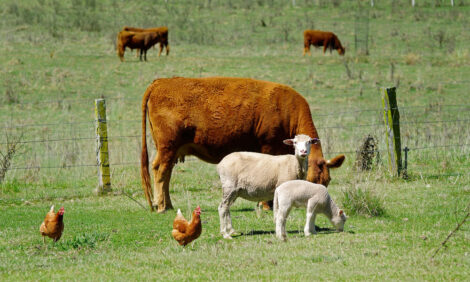



WTO challenges worry Vietnamese farmers
VIET NAM - Vietnam's accession to the World Trade Organization (WTO) opens opportunities for many businesses to penetrate into larger export markets and for consumers to enjoy better goods with lower prices, local farmers, however, worry that joining the trade body would not only bring them benefits, but also great challenges.Nguyen Nam Thanh, 45, who owns a three-hectare orange orchard in northern Hung Yen province, fears that imported fruits will defeat his products just in the domestic market. "I think the WTO accession will affect me a lot because the market will be flooded with foreign fruits, and they will be very cheap" he said.
"Even if people like my oranges, I couldn't sell them at the same price of similar imports, because it is lower than my production cost."
Under Vietnam's WTO commitments which take effects on Jan. 11, the country opens doors to foreign products, lowers average import tariff levied on farm produces from 23.5 percent to 20.9 percent within five years, and abolishes agricultural export subsidy.
The market opening will place high pressure on such local industries as fruit and vegetable, sugar and husbandry due to their small-scaled production, and low development level, low products' quality and labor productivity, said Vietnamese Minister of Agriculture and Rural Development Cao Duc Phat.
Vietnam's livestock will encounter fierce competition in terms of prices and quality from Europe, the United States and some Asian countries, and the country's two key export items, namely rice and coffee, will have to compete with those from Thailand and Brazil.
According to local experts, most of Vietnam's agricultural produce will be affected, while few local farmers are well- prepared for this.
"Through TV and radio, I know Vietnam has already joined the WTO. I also heard benefits and difficulties the accession offers. But I'm just a farmer, I don't know how to deal with them," said Nguyen Thi Dao, who raises a herd of more than 20 milky cows in Chuong Duong village, 20 km south of the capital of Hanoi.
In addition to opening doors to more imported agricultural commodities, Vietnam has committed to expand business rights to foreign enterprises operating in the fields of goods export, import and distribution, the minister said, noting that the infiltration of multinational companies with advantages in finance, distribution system, information and management will pose big challenges to local enterprises which are weak in competitiveness, finance, and technology.
Foreign firms will seek ways to do business in Vietnam, especially in the fields of soybean, beef, pork, chicken, and milk after the country joins the global trading club.
Source: People's Daily Online











